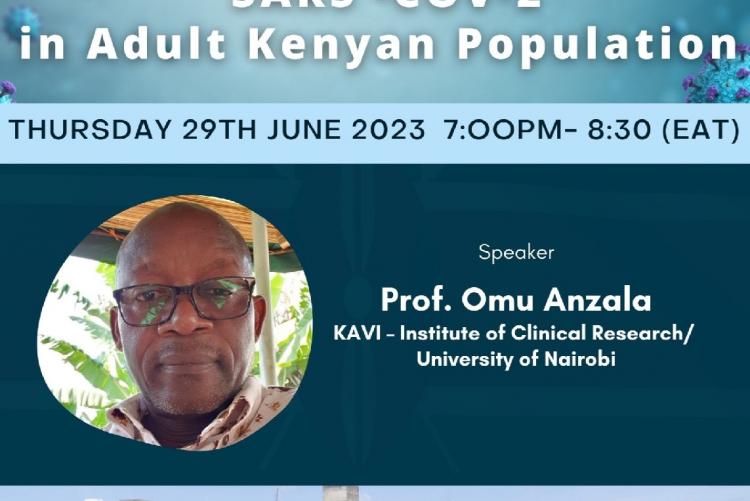On Thursday, 29th June 2023, we had the unique opportunity to attend an enlightening talk by Prof. Omu Anzala from the Department of Medical Microbiology and Immunology. This exceptional dialogue emphasized the discovery and implications of a robust immune response against SARS-CoV-2 in the adult Kenyan population.
Introduction
Prof. Anzala began his discussion by giving a succinct overview of the SARS-CoV-2 virus, its worldwide impact, and how it has dramatically altered our lives in the past few years. As an accomplished researcher specializing in infectious diseases, Prof. Anzala's insights were grounded in robust research data. They offered the audience a thorough understanding of the virus and the body's response to it.
Findings on the Kenyan Population
Central to Prof. Anzala's talk was exploring a study on the adult Kenyan population. The findings from this research suggested that this group demonstrated a particularly robust immune response to SARS-CoV-2 compared to other population groups studied globally. This significant finding spurred a lot of excitement and hope in the medical community and beyond, prompting a deep dive into the underlying reasons.
Immune Response to SARS-CoV-2
The study showed that many adults in the Kenyan population had developed a surprisingly high level of T-cell and B-cell immunity against SARS-CoV-2. This enhanced immune response was found even in individuals who had been asymptomatic or had suffered only mild COVID-19 symptoms. This is an encouraging sign for the potential control and mitigation of the virus in this demographic.
Possible Factors Behind the Robust Response
Prof. Anzala shared some fascinating insights into the potential factors that might have contributed to this immune response. These included genetic factors, prior exposure to different coronaviruses, and even environmental and lifestyle factors. He explained the hypothesis that the exposure to a myriad of pathogens might have trained the immune systems of the Kenyan adults, equipping them to mount a potent response against SARS-CoV-2.
Implications and Future Research
The implications of these findings are potentially far-reaching. The robust immune response in the Kenyan population could provide crucial clues for developing more effective vaccines and therapies against COVID-19. It could also help us understand how different people worldwide may respond differently to the virus, opening the door to more targeted and effective public health interventions.
However, Prof. Anzala emphasized that while these findings are encouraging, they are not a carte blanche for complacency. The need for continued vigilance, adherence to public health measures, and vaccination efforts remains critical.
Prof. Anzala's talk concluded by calling for more research to confirm these findings and delve deeper into the unique immune response. Understanding why the Kenyan population responded so effectively to SARS-CoV-2 could yield valuable information that could be used in the ongoing fight against this global pandemic.
Conclusion
This enlightening talk by Prof Omu Anzala provided a unique perspective on the immune response to SARS-CoV-2. It left us hopeful about the potential of the human immune system and the scientific community's ability to harness this information in the fight against COVID-19. The journey is ongoing, and each discovery, such as this one, moves us one step closer to overcoming this global health challenge.
- Log in to post comments

